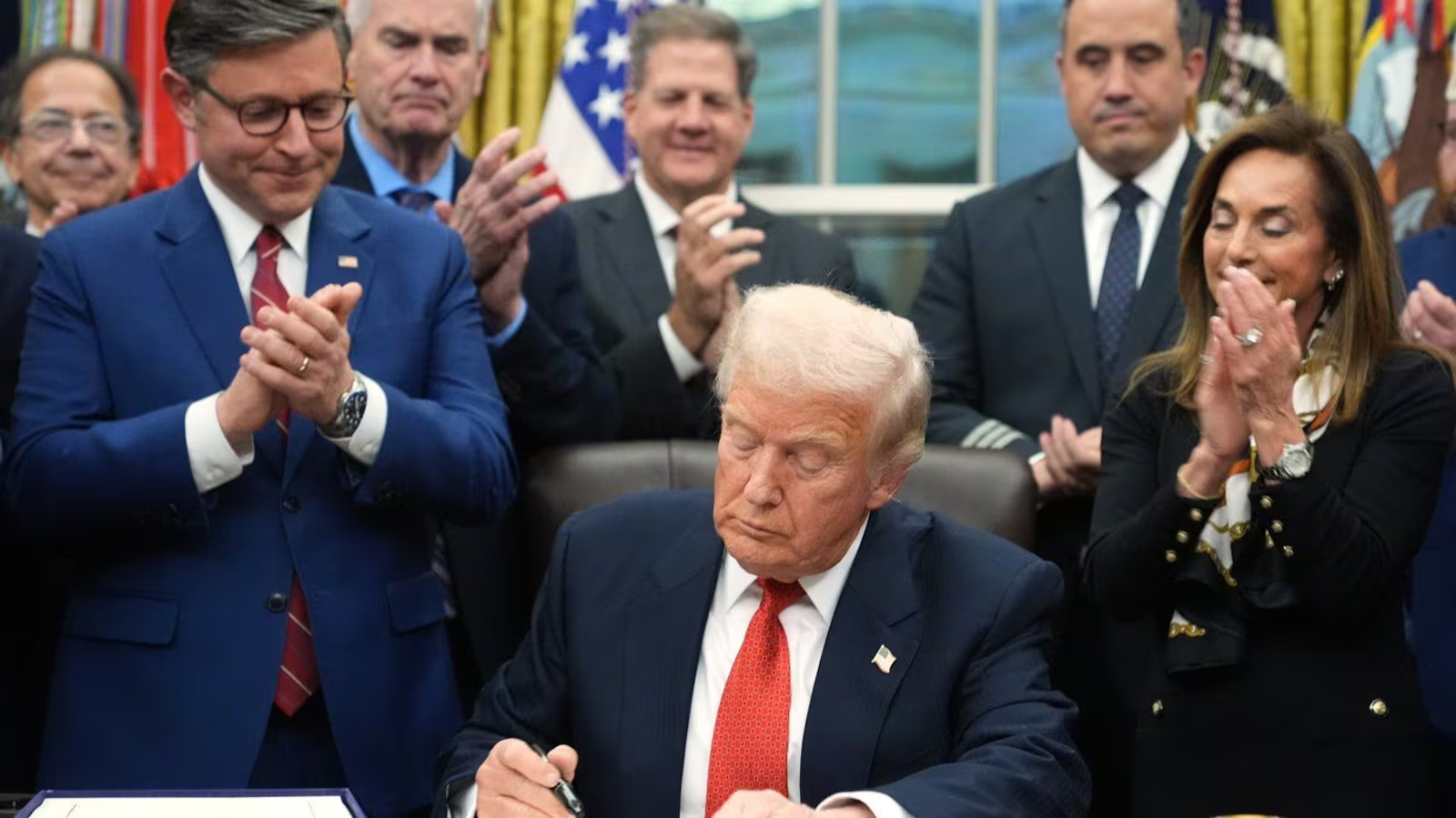U.S. President Donald Trump on Wednesday night signed a long-delayed government funding bill, officially ending a 43-day shutdown—the longest in American history. The standoff left federal workers without paychecks, caused travel disruptions at airports, and forced many families to seek help from food banks as political tensions in Washington reached new extremes.
The shutdown stemmed from a bitter dispute over health care subsidies, with Democrats insisting that any funding bill must extend an enhanced tax credit expiring at the end of the year—one that lowers the cost of Affordable Care Act marketplace insurance. Republicans refused to include the measure, arguing the policy fight belonged in a separate debate. The stalemate locked Congress in gridlock for more than six weeks.
Hours before Trump signed the bill, the House approved the measure in a narrow 222-209 vote, following the Senate’s approval earlier in the week. Speaking from the Oval Office, Trump blamed Democrats for the shutdown’s impact and urged voters not to forget the party’s stance during next year’s midterm elections. “When we come up to midterms and other things, don’t forget what they’ve done to our country,” he said.
The frustration boiled over on Capitol Hill as lawmakers debated the funding package. Republicans accused Democrats of weaponizing the shutdown to force policy concessions, while Democrats countered that the GOP rushed earlier tax breaks for the wealthy yet failed to guarantee affordable health care for working families. House Speaker Mike Johnson argued Democrats imposed “pain” deliberately, while Democratic leader Hakeem Jeffries vowed to continue fighting for the subsidy extension.
The spending bill itself was crafted by a group of eight senators who broke ranks with Democrats after concluding Republicans would not bend on tying tax credit extensions to government funding. Their compromise package funds three annual spending bills outright and extends the rest of the government’s operations through January 30. Republicans promised to hold a vote in mid-December on whether to extend the health care subsidies, though success is far from certain.
The legislation includes safeguards for federal workers, reversing any firings carried out during the shutdown and protecting employees from further layoffs until early next year. It guarantees back pay and provides steady funding for the Agriculture Department, ensuring food assistance programs continue without interruption for the remainder of the fiscal year. The bill also sets aside $203.5 million for enhanced security for lawmakers and $28 million for additional Supreme Court justice protection.
One controversial provision sparked backlash from both parties: language permitting senators to sue federal agencies if their electronic records are searched without notification, with potential damages up to $500,000 per violation. Critics noted the measure could open the door for Republican senators to pursue legal action over FBI investigations into Trump’s efforts to overturn the 2020 election. Speaker Johnson said he was “very angry” the language was added at the last minute and pledged a separate vote to address the issue.
At the core of the shutdown was the looming expiration of the enhanced ACA tax credit, which helps millions of Americans afford health coverage. Without the extension, premiums will more than double for many, and more than two million people could lose coverage entirely, according to the Congressional Budget Office. Democrats insisted the credit expanded access to care, while Republicans argued it was an unnecessary pandemic-era subsidy that had run its course.
Looking ahead, the Senate is expected to debate the tax credit in December, though it remains unclear whether the two parties can reach agreement. Some Republicans have signaled openness to extending the subsidy if new income caps and restrictions are added. Senator Susan Collins, who chairs the Senate Appropriations Committee, said she supports extending the tax credits with changes to ensure they are targeted. Some Democrats appear willing to entertain those adjustments, but others remain deeply skeptical.
Rep. Rosa DeLauro, the top Democrat on the House Appropriations Committee, voiced strong doubts that the GOP would negotiate in good faith, noting Republicans have spent 15 years trying to undo the Affordable Care Act. “That’s where they’re trying to go,” she said.
For now, the government is open again—but the political fight that closed it remains far from resolved.

